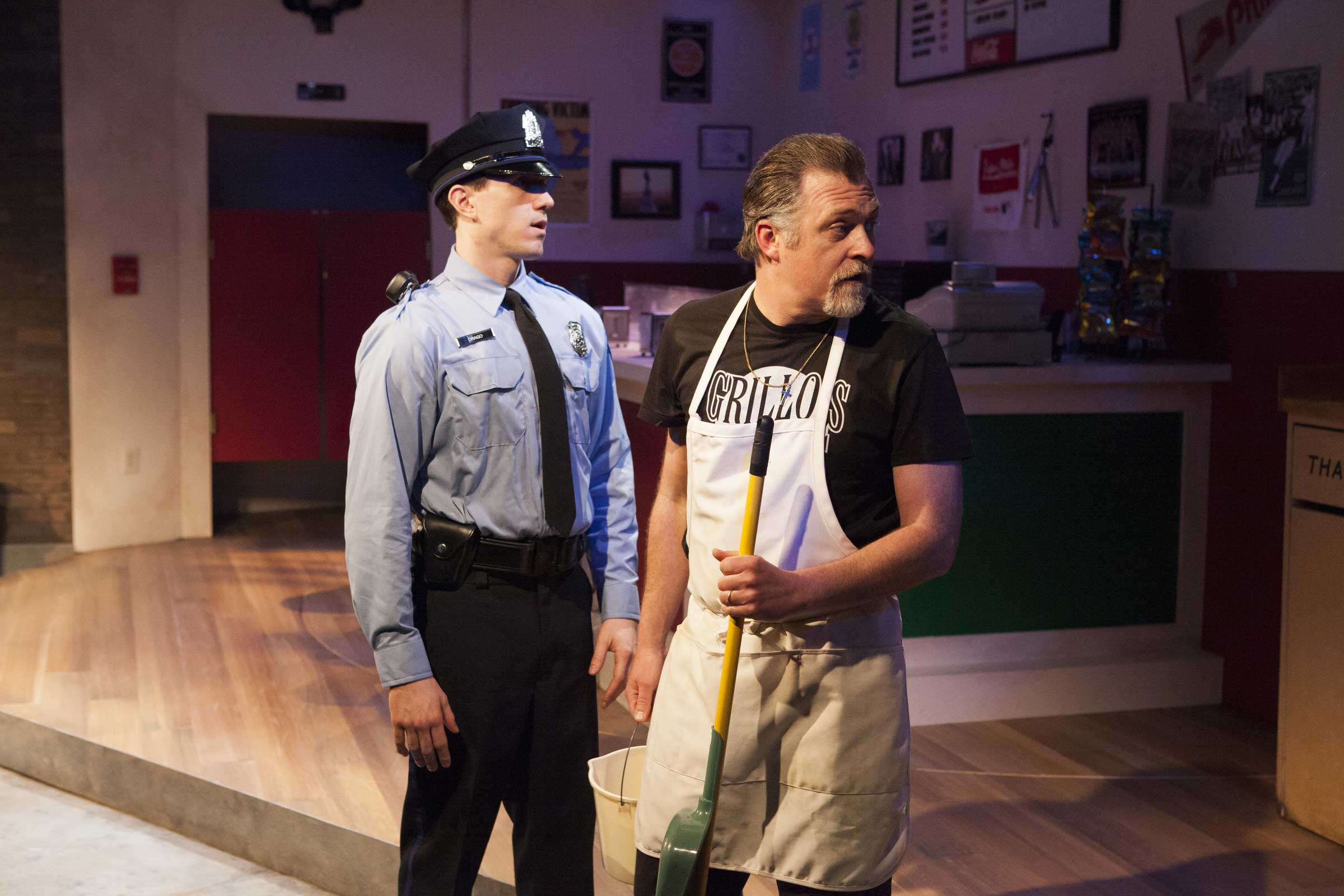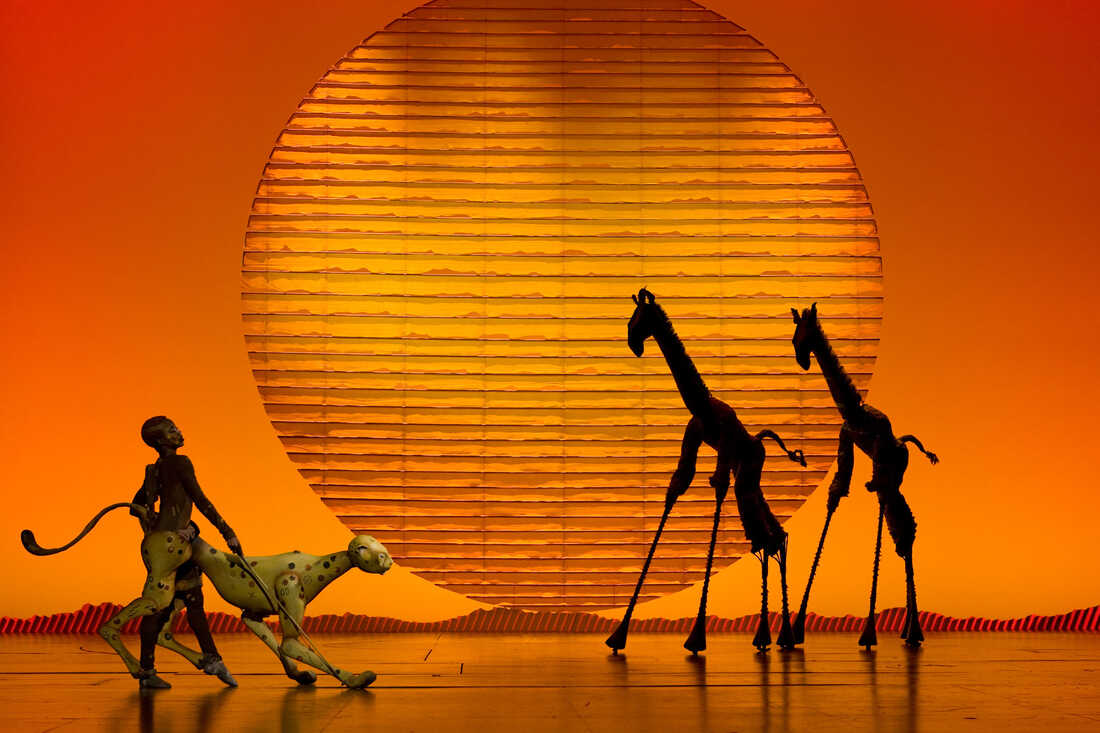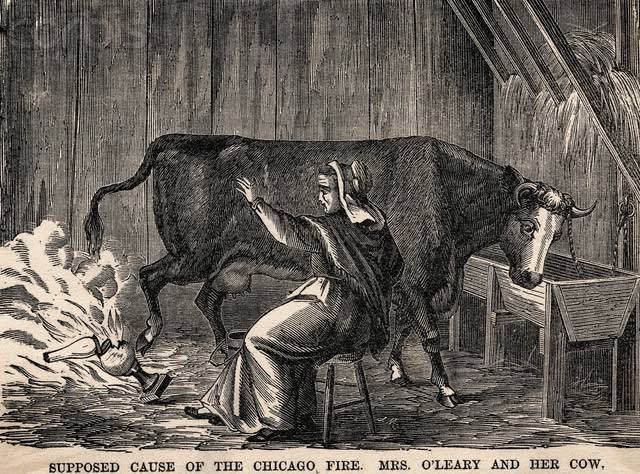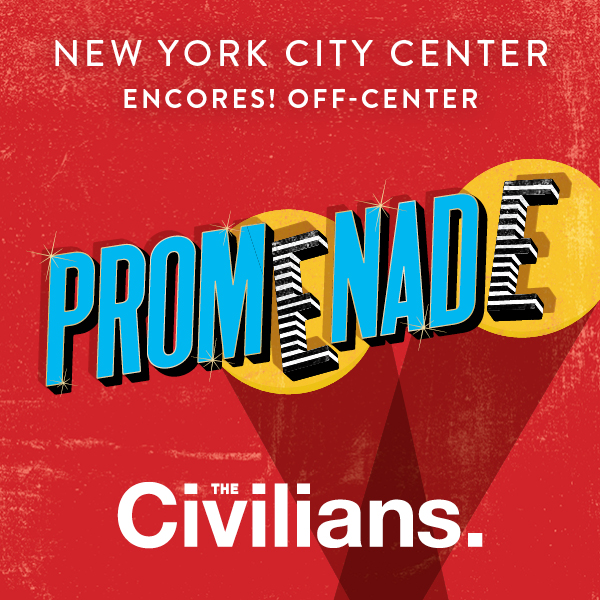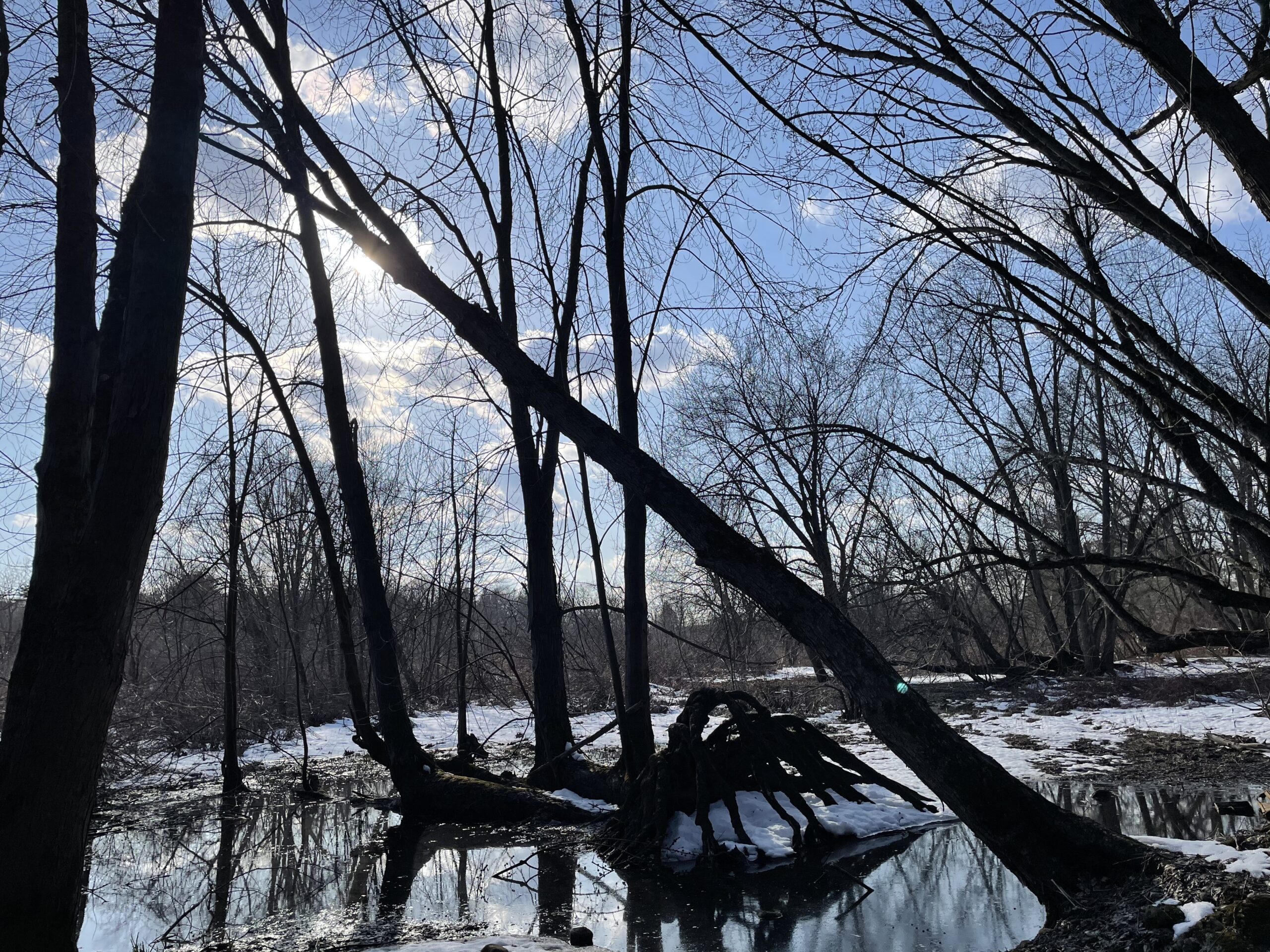Playwright A. Zell Williams is horrible at small talk, or so he claims. But he’s using his time as the Tow Foundation Emerging Playwright-in-Residence to get to know a lot of people, creating Sadiddy: the Storytellers’ Podcast, for which he regularly interviews theater artists about their life and work.
Megan McClain recently turned the interview mic back at Williams, asking about everything from the podcast to his recent Barrymore Award-winning play “Down Past Passyunk.”
MEGAN MCLAIN: Let’s talk about the podcast you’re doing for your residency at the Public. What inspired you to create it?
A. ZELL WILLIAMS: I started the podcast in September 2012 because I like podcasts. I like talking, I like asking people questions. I’m very horrible at small talk, which is bad in general, but it’s actually really good in regards to interviewing. I really hate talking about things that don’t matter. So when you ask someone about their life and things that are important — that’s exciting. I also just wanted an excuse to hang out with really cool playwrights I love, and I wanted to do something that was sort of artistic and didn’t require getting the okay from any artistic director or producer. The last reason is that I remember what it was like to be a writer in a place where there were no writers. The point of my podcast is to educate you, but also to entertain you. It’s never boring. And sometimes we theater people like to focus on strictly education. Education is great, but I also have a bit of a ham in me.
MEGAN: Are you asking the artists about their process or about their life? Is anything on the table?
A. ZELL: Anything is on the table. I’m not Charlie Rose. Actually, no, I like Charlie Rose. I was going to say that it’s not like Frost/Nixon. But it’s about their life and their process, and how one influences the other. The latest one was me and Kris Diaz talking about growing up here in New York. We talked about silly stuff, like being kids growing up and watching wrestling. But we also talked about how growing up in Yonkers as a non-Spanish-speaking Puerto Rican made him feel distant from his close neighbors of the same ethnic background, as well as how that influences how he sees the world. We kind of shared that element too. I love hip hop as much as I love punk rock. When I was in high school it was really weird, because I’d be this black kid with all these white and Hispanic punk rock friends. So the black kids wouldn’t really hang out with me, but there was a whole other side to myself I wasn’t sharing with my core group of friends.
The podcast is about figuring out what drives people and then how they take that and funnel it into their work. It will be on the Public’s website until February, the end of my residency, and then it will have a new incarnation on another institution’s website that is yet-to-be-announced.
MEGAN: Can you tell me more about your residency at the Public?
A. ZELL: I am the Tow Foundation Emerging Playwright-in-Residence at the Public Theater. The Tow Foundation is an amazing family of people. They fund juvenile justice, medical research, and arts and cultural institutions. Last year they decided to become more proactive in the lives of artists. They were interested in things beyond infrastructure support, so they came up with this plan to give funds to different institutions to provide support for artists. Those institutions said that it is very easy to get money for a lovely person like Suzan-Lori Parks, who is a genius, and it’s very clear she is a genius. Where we are losing the battle is getting money for younger people we believe have talent, but they get sidebared by life, student loans, or jobs in television. They came up with a residency that pays a good living wage for an emerging writer to develop work for a year.
The work I’m developing at the Public: I did “Urban Retreat” in workshop form in May, and we’re working on another play called “Juneteenth,” which we will do an in-house reading of in the future. The podcast is part of that. I hate the fact that many residencies are completely oblivious to the audience, so the podcast is my direct way to say, “Hi! I’m a writer in residence, if you are curious as to who I am. And here I am talking to another person.”
MEGAN: When you were a member of the Civilians’ R&D Group in 2013, you were developing a project based on child rearing. I know you’ve shelved that play for the time being, but I’m curious about how the kind of work you were doing with the Civilians relates to your work as a whole. Even if you aren’t doing formal interviews, are there other investigative methods that permeate your fictional plays?
“Every single human being has an important story and an important thing to contribute.”
A. ZELL: I’m sure they do. Mainly because I write so many things that are inspired by actual things that confuse me in real life. Or things that make me angry. Real life occurrences. Part of the process becomes understanding the opposition, understanding the other person and trying to give them an honest voice. So I use the work to figure out my own feelings or better understand those issues. The Civilians was my first foray into investigative theater, but in a way it was always there in my work.
I was talking to a group of high school students, and one of them asked, “How do you write about something that’s difficult?” Sometimes I write plays where the protagonists are people I share absolutely nothing in common with. As a writer, the conflict is really easy because this character is creating all of the parallel arguments to everything you say. But also it gives you a chance to look into the mind of the opposition, to really get in and try to understand the world from their point of view. Because really you are exactly the same, except you came out of different experiences. Every decision everyone makes is going to be based on the experiences they have had. Your way of seeing the world is going to be different from my way of seeing the world, because you are a woman, and you are white, and you grew up in Ohio. So when we differ on things, it’s important to remember that it’s not because you’re non-human. It’s easy to demonize people. It’s easy to dismiss their arguments. Investigative theater plays a role for me in truly giving voice to both sides of an issue. What works the most about investigative theater is its blatant honesty. Often times in fictionalized theater, we come to a point where we have to make a choice between dramatic and truthful. Not always, but sometimes. The thing I respect the most about investigative theater is that it never makes that choice. Good investigative theater just presents it as it is, without being proscriptive, without denigrating anyone.
MEGAN: Did investigative theater methods feed into your recent play, “Down Past Passyunk,” which draws inspiration from a true story that happened in Philly in 2006? While you were living in Philly, did you do any interviews to inform the play?
A. ZELL: I talked to people who grew up in all parts of Philly while I was there. It’s not an investigative theater piece. In fact, I went out of my way to make that fictionalized. One, because the restaurant it’s inspired by is still there. It’s still one of the biggest restaurants in town, and it’s owned by the son of the man who made the comments the play is based on. The play was inspired by this guy Joey Vento, who owned Geno’s Cheese Steaks and noticed his South Philly Italian neighborhood was becoming more and more Hispanic. So he hung up a sign in the shop that read, “Welcome to America. When ordering, please speak English.” And he became a huge conservative figure. He gave speeches on the steps of congress and appeared on Fox News. He passed away in 2011. It was really an interesting moment, because if it was something that happened in Chicago, New York or L.A., this guy would have been castigated. But in Philly, things like this happen. And it just goes away, and we don’t talk about it if you disagree with it. Though there were a lot of people in South Philly who didn’t disagree with it.
I thought that what happened in Philly was a beautiful parallel for what was going on nationally. So when I talked to people about their reactions about it at the time — and this wasn’t a deep investigative research — most of the people I talked to did not really like to talk about it, because it was one of those things they were really ashamed of. After 9/11, which now has been almost half of my life, the term patriotic has taken on so many meanings that are both legitimate and illegitimate and are sometimes just used to get people riled up.
I thought writing this story about a small incident that grew into a bigger incident would give people a chance to talk about those themes. I was in residence at the Civilians when I was working on the play, and what being around the Civilians really showed me was that every single human being has an important story and an important thing to contribute.
MEGAN: It sounds like what you touched on earlier about embodying the opposition — taking someone ostensibly so different from you, placing him in the play and then working through it. It sounds like this play gave the people in Philadelphia a space to engage with that issue, if they had not been talking about it otherwise. What happened to the sign? It’s not still there, is it?
A. ZELL: This is the crazy thing about this drama. It’s still there, and I’ll tell you exactly why it’s still there. Joey Vento died in 2011, and his son inherited Geno’s Cheese Stakes. I don’t know if you know how much Geno’s Cheese Steaks makes, but I’m just gonna say he probably pulls in something like 2 million dollars a year at least. Maybe that might be a little high. It’s on this corner across the street from Pat’s Cheese Steaks — Pat’s King of Steaks. They’re arguably the two biggest Cheese Steak restaurants in town. When Joey Vento died, he put in his will that the sign had to stay up. Joey Vento’s son is an openly gay, theater producing — like, I’m not even talking about looking for a big Broadway hit, he produces really cool, underground shit, like drag shows. And he has been actively trying to pull the restaurant out of this bit of a political quagmire that his dad got them in. His dad held a political belief. And to his credit, he put his business behind his political belief. Just like I would hope anybody who was pro-marriage equality would demand that their employees get benefits for their partners. So, the sign is still there.
MEGAN: In what context is it displayed?
A. ZELL: It’s right by the window when you go up. Geno’s is a fascinating business because on the side of the business are all of these photos of fallen police officers. He really did a lot to support the fallen police officers and the police officers association of Philadelphia. Geno’s has always been very much politically active and politically conservative. Joey Vento was always that way, and he made his business reflect that. And now his son is not that. It’s funny. It’s been about 6 months since we did the show. It’s not like I keep up. But last I heard, it was still there. Sins of the Father.
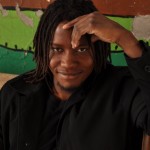 A. Zell Williams is a Resident Playwright with The Public Theater and New Dramatists and is a writer for NBC’s “Law & Order: Special Victims Unit.” Productions: “In A Daughter’s Eyes” and “Down Past Passyunk” (InterAct Theatre, Philadelphia). Awards: Marin Theatre Company Emerging American Playwright Prize, The Terrence McNally New Play Award, NYU’s Goldberg Playwriting Award, National New Play Network’s Smith Prize. His plays include “The Biggest Valley,” “Carroll Gardens” and “The Urban Retreat.”
A. Zell Williams is a Resident Playwright with The Public Theater and New Dramatists and is a writer for NBC’s “Law & Order: Special Victims Unit.” Productions: “In A Daughter’s Eyes” and “Down Past Passyunk” (InterAct Theatre, Philadelphia). Awards: Marin Theatre Company Emerging American Playwright Prize, The Terrence McNally New Play Award, NYU’s Goldberg Playwriting Award, National New Play Network’s Smith Prize. His plays include “The Biggest Valley,” “Carroll Gardens” and “The Urban Retreat.”
Author
-

Megan McClain is the R&D Program Director for the Civilians and leads the writers, directors, and composers of the R&D Group. As a former Civilians Literary Associate, she worked on "The Way They Live" and "The End and the Beginning" at The Met. She is a staff member at The Lark and also serves as the Resident Dramaturg for Superhero Clubhouse, an ensemble creating original works at the intersection of ecology and theater. She has developed new theatrical work presented during artist residencies granted by The Metropolitan Museum of Art, The Drama League, NACL Theatre, Catwalk Institute, Stony Brook University, Lacawac Sanctuary, and the Lower Manhattan Cultural Council. She has provided dramaturgical support and literary work for productions and projects at numerous organizations including The Goodman Theatre, Disney Theatrical, Hartford Stage, PoNY, Playwrights Realm, The Lark, LMDA, Target Margin, Jewish Plays Project, New Georges, PlayPenn, and American Players Theatre. M.F.A Dramaturgy: University of Massachusetts Amherst.


